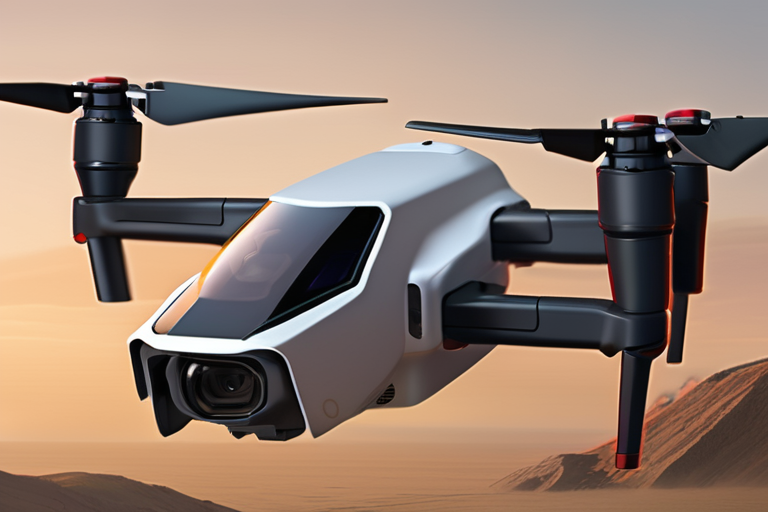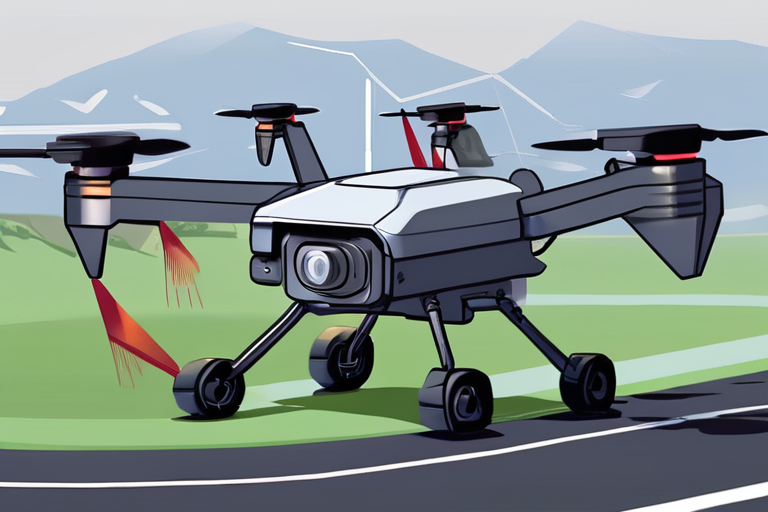DJI Loses Lawsuit Over Classification as Chinese Military Company
A federal judge has rejected drone maker DJI's efforts to be removed from a Department of Defense list of Chinese military companies, dealing a significant blow to the company's reputation and business.
U.S. District Judge Paul Friedman ruled Friday that the DoD had provided substantial evidence that DJI contributes to the Chinese defense industrial base. In his decision, Friedman pointed out that modified DJI drones were used in the conflict between Russia and Ukraine, stating that "whether or not DJI's policies prohibit military use is irrelevant. That does not change the fact that DJI's technology has both substantial theoretical and actual military application."
DJI had argued that it was not owned or controlled by the Chinese military and that the DoD itself acknowledges that DJI makes consumer and commercial drones, not military drones. However, Friedman rejected this claim, stating that "the company's policies may prohibit military use, but that does not mean its technology is not used for military purposes."
The lawsuit also claimed that the listing had caused ongoing financial and reputational harm to the company, including lost business. DJI had filed the suit last year after being added to the DoD list in 2022.
"This decision is a significant setback for DJI," said a spokesperson for the company. "We will continue to work with the government to resolve this issue and restore our reputation."
The classification of DJI as a Chinese military company has been a contentious issue, with some experts arguing that it is unfair to label the company based on its country of origin.
"DJI's technology is widely used in the commercial drone industry, and it's unclear why the DoD would single out the company for this designation," said Michael Blades, an expert on unmanned aerial vehicles. "This decision will likely have far-reaching implications for the industry as a whole."
The ruling may also have implications for other companies that do business with DJI or rely on its technology.
"This decision highlights the complexities of international trade and the challenges of navigating complex regulatory environments," said Rachel Potter, an expert on international trade law. "Companies must be aware of the potential risks and consequences of doing business in countries with complex regulatory regimes."
The case is now expected to go to appeal, with DJI vowing to continue fighting for its reputation.
In a statement, DJI's CEO, Frank Wang, said: "We will not give up our fight against this unjust listing. We will continue to work tirelessly to restore our reputation and protect the interests of our customers."
The outcome of the appeal is likely to be closely watched by industry observers and policymakers alike, as it may have significant implications for the future of international trade and technology regulation.
Background:
DJI has been a leading player in the commercial drone market for several years, with its drones used in a range of industries including construction, agriculture, and filmmaking. However, the company's ties to China have raised concerns among some policymakers and industry observers.
In 2022, the DoD added DJI to its list of Chinese military companies, citing concerns about the potential use of DJI's technology for military purposes. The listing sparked a heated debate about the role of Chinese companies in the global economy and the implications of doing business with countries with complex regulatory regimes.
Additional Perspectives:
Industry experts say that the decision highlights the complexities of international trade and the challenges of navigating complex regulatory environments.
"This decision is a wake-up call for companies operating in countries with complex regulatory regimes," said Rachel Potter, an expert on international trade law. "Companies must be aware of the potential risks and consequences of doing business in these countries."
The ruling may also have implications for other companies that do business with DJI or rely on its technology.
"This decision highlights the importance of due diligence and risk assessment when working with foreign companies," said Michael Blades, an expert on unmanned aerial vehicles. "Companies must be aware of the potential risks and consequences of doing business with companies from countries with complex regulatory regimes."
Current Status:
The case is now expected to go to appeal, with DJI vowing to continue fighting for its reputation.
"We will not give up our fight against this unjust listing," said DJI's CEO, Frank Wang. "We will continue to work tirelessly to restore our reputation and protect the interests of our customers."
The outcome of the appeal is likely to be closely watched by industry observers and policymakers alike, as it may have significant implications for the future of international trade and technology regulation.
Next Developments:
The case is expected to go to appeal in the coming weeks. Industry experts say that the decision will have far-reaching implications for the commercial drone market and the global economy.
"This decision highlights the complexities of international trade and the challenges of navigating complex regulatory environments," said Rachel Potter, an expert on international trade law. "Companies must be aware of the potential risks and consequences of doing business in countries with complex regulatory regimes."
*Reporting by Techcrunch.*



 Hoppi
Hoppi

 Hoppi
Hoppi

 Hoppi
Hoppi

 Hoppi
Hoppi

 Hoppi
Hoppi

 Hoppi
Hoppi











